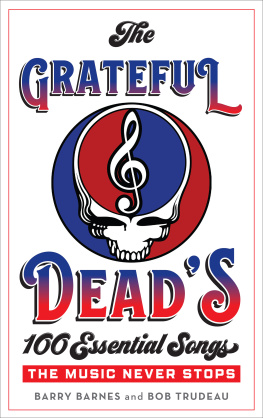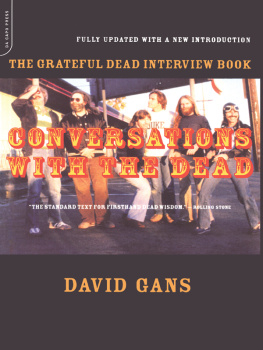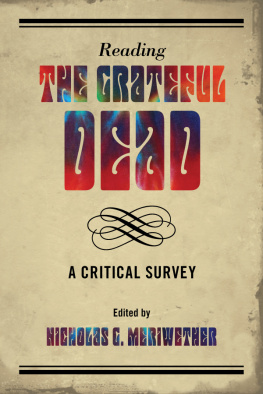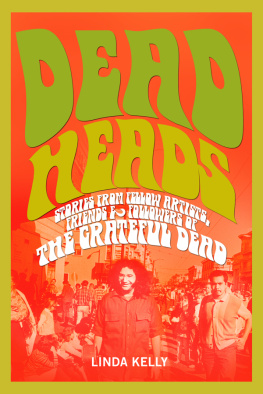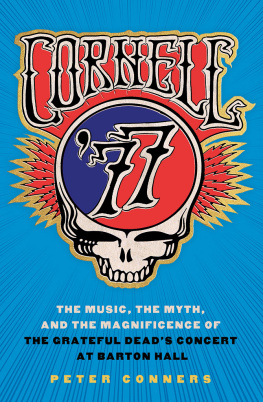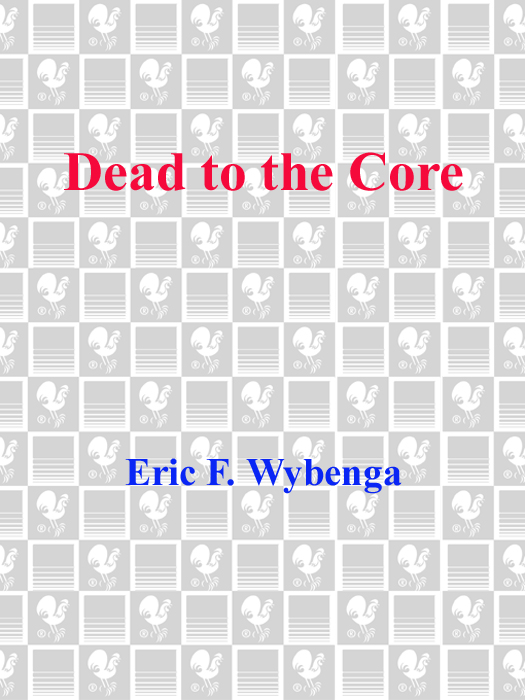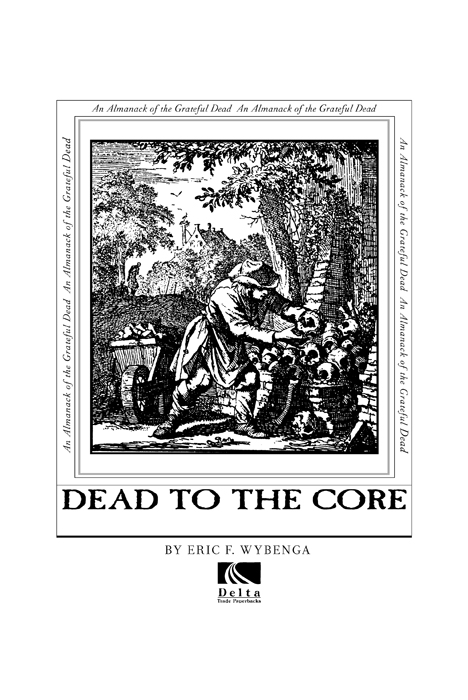A Delta Book
Published by
Dell Publishing
a division of
Bantam Doubleday Dell Publishing Group, Inc.
1540 Broadway
New York, New York 10036
Dead to the Core: An Almanack of the Grateful Dead is not affiliated with or endorsed by Grateful Dead Productions, Inc. or Grateful Dead Merchandising, Inc.
Copyright 1997 by Eric F. Wybenga
All rights reserved. No part of this book may be reproduced or transmitted in any form or by any means, electronic or mechanical, including photocopying, recording, or by any information storage and retrieval system, without the written permission of the Publisher, except where permitted by law.
The trademark Delta is registered in the U.S. Patent and Trademark Office and in other countries.
Library of Congress Cataloging in Publication Data
Wybenga, Eric.
Dead to the core : an almanack of the Grateful Dead / by Eric Wybenga.
p. cm.
eISBN: 978-0-307-76840-7
1. Grateful Dead (Musical group)Miscellanea. 2. Grateful Dead (Musical group)Anecdotes I. Title.
ML421.G72W9 1997
782.421660922dc21
[B] 96-39726
CIP
MN
Design by Bonni Leon-Berman
v3.1
For my
mother and father
and Jennifer
and for
Jerry Garcia
19421995
Contents
I dont know how many of you know that today is Ho Chi Minhs birthday. Its true, I read it in my almanac.
Bob Weir, Fox Theater, May 19, 1977
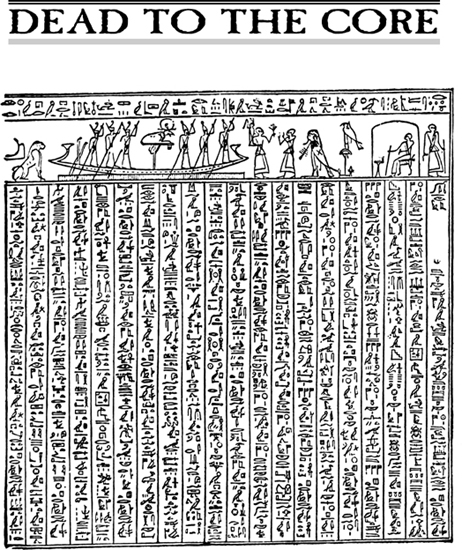
I N T R O D U C T I O N
We begin with the inescapable It. Jerry is gone, and there will be no more Grateful Dead shows. There will come a time when these sad facts no longer bear mentioning, and already their effect upon those of us who call ourselves Deadheads has changed. The character of Deadheads mourning has subtly shifted from head-shaking wordlessness to a grim acceptance of simple truth. Even an accepted truth can surprise people, though, such as when the hankering for a show bubbles up from the unconscious or when they are confronted with images captured on video.
Jerry Garcia was not a saint, a fact that we have been acquainted with amply in the stories and books that have followed in the wake of his passing. But he was a pretty damn fine example of a human being. One gets the feeling that he was a man possessed of such boundless creative and interpretive power that he would have left his mark on any field of artistic endeavor he chose. As such, music was lucky to have had him, especially given the young Garcias struggles with whether to follow the muse of visual art or music. I suspect that in an odd little corner of the Eep dimension, there once lived a painter by the name of Jerome J. Garcia, an artist whose canvases bore the mark of brushstrokes both obsessively fine and audaciously broad, whose palette played host to colors of his own invention, whose work encompassed the fiercest strains of abstract expressionism and the humblest folk art, an artist who sent people home from galleries weeping and laughing over small works of portraiture that perfectly captured their subjects essence yet reserved for them the personal mystery at the heart of verisimilitude. This Seor Garcia, beloved of many, would for his personal amusement pick up a guitar from time to time. Those who were lucky enough to behold the fruits of his avocation commented on how closely his music matched the restless wit evinced in his better-known paintings.
Of course, our Jerry Garcia chose guitar over paintbrush, and his lifes work would fill a very large canvas indeed. Because he chose the supremely expressive medium of music, he has touched us all. One can argue endlessly and pointlessly about the technical merits of Jerrys guitar playing, but one thing on which all seem able to agree is that his playing possessed an almost matchless ability to convey emotion and mood. The same is true of his voice, though this quality in his performances often goes unheralded. In Jerrys homespun blend of vocal stylesa bit of Bill Monroe, a little Bob Dylan, a pinch of Lennon and McCartneyhe created for himself a voice of unforced affect. His interpretive talentwhich sprang from the same nook of his creative mind whence came all those eloquent guitar phrasingswas such that he seemed to live so many of his songs rather than simply emote them. In later years, his voice raspy and weathered, singing as he always has at the upper limits of his range (and always, no matter how shot the voice, on key), he became in performance the very personification of the wisdom of years. The plainspoken honesty of his playing and singing, coupled with the wit and intellectual playfulness we saw in interviews, made us feel not only as if we knew him but that he was someone very special to know.
Jerry and the Dead are sorely missed and will continue to be, with all those shows unplayed and songs left unwritten (or at least uncovered!). And we also feel the loss of the total experience of touring and the shows themselves. But we also miss the personality of the Dead, for they were a band that possessed this in abundance. This character wasnt always good or kind or happy, and thats just the point. Here was a band that was remarkably honest in how they allowed us to see them. Because of this unwillingness to construct elaborate facades in performance and life, they became a part of our lives, our friends, the Boys, who really knew how to play music. This gave the music and the bands history a living drama, a vibrancy, it might not otherwise have possessed (Listen to that soloyou can tell Jerrys pissed at Weir for blowing the verse). It is in a sense ironic that we call Dead concerts shows because compared with most rock bands there was very little show at all. There was instead music played by interesting people with a fantastic history.
What a history! There are so many facts of the Grateful Deads life, both happy and sad, that could not have been more perfect if they had been scriptedthat they were the house band at the Merry Pranksters Acid Tests; that both Robert Hunter and Ken Kesey were turned on to acid while acting as guinea pigs for government-sponsored LSD studies, then went on to play a large role in inventing the cultural component of what we now think of as the sixties; that the Deads earliest patron and benefactor was Augustus Owsley Stanley III, aka Bear, the sixties most legendary tabber of acid; that this band of misfits and their benefactor would essentially invent the modern rock sound system; that the Holy Grail of Dead tunes, Dark Star, would be the first tune that the Dead and Hunter wrote as a group; that they would one day play at the foot of the Pyramids and that a lunar eclipse would coincide with one of their shows there; that a large shooting star would streak across the sky as they were about to revive Dark Star at the Greek Theater; that Brent Mydlands last show would fall on the ten-year anniversary of Keith Godchauxs death; that the Deads last year would fulfill two tongue-in-cheek Deadhead propheciesTrouble Ahead, Jerry in Red (he wore a red T-shirt onstage at the start of the last tour) and the belief, spurred by an offhand remark made by Phil Lesh, that if Unbroken Chain were ever played live, it would spell the end of the Dead; and finally that Days Between, a haunting meditation on the past and on unfulfilled dreams, would be the last song Hunter and Garcia would write together.


